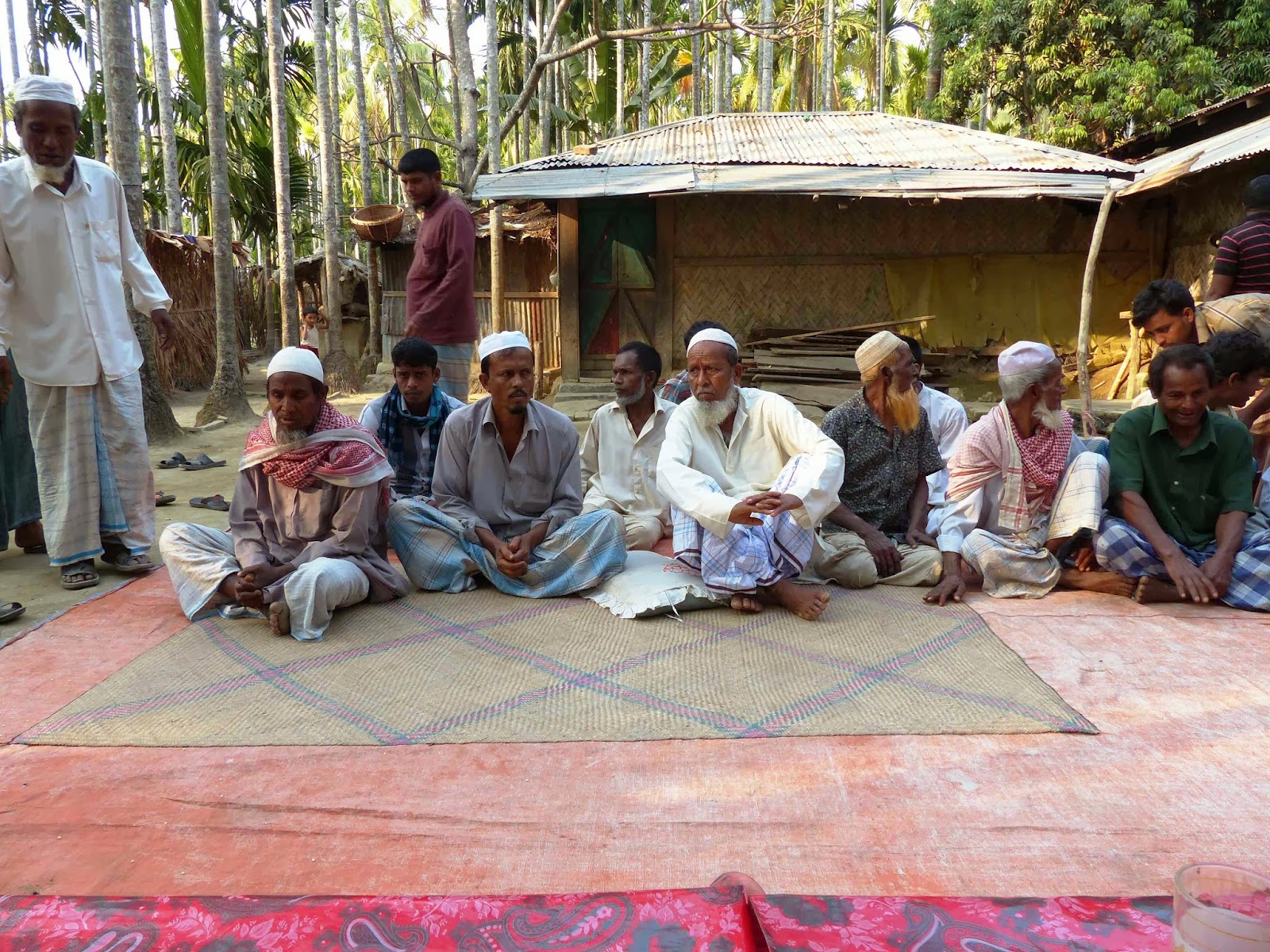Lon and I spent the past week away from Dhaka - visiting projects supported by the Dutch - this time within the Water Sector activities. Field trips are always an incredible and eye-opening experience, as well as being exhausting and this was no exception.
On Sunday 9th we flew from Dhaka to Cox's Bazar.
 |
| On internal flights luggage is passed through this hole in the wall to a guy with a trolley |
Cox's Bazar is Bangladesh's no 1 internal tourist spot - it has a 125km beach - but we weren't there to picnic on the beach, or swim fully clothed.
Instead after meeting with the partners we went to visit the proposed site of a desalination plant, as yet, however, we visited a pile of building materials between a road and a field. The water in this village is saline and poor quality, even when deeper wells have been tested, now the women are walking over 2km to the airport after dark to collect water, and have to depend on the whim of the guards whether they can enter to collect (illegally). Desalination seemed an expensive solution to the problem to me (why not pipe water from the airport supply?) - but I am not a water expert.

we also visited the site of a proposed watch tower and area of mangrove
(re)construction, and met with a the Village Conservation Group. A large
proportion of this project is in offering training in alternative
livelihoods, and small loans - since most people are reliant on the sea
and mangroves for their living. By offering other income sources, it is
hoped that the intense pressure on the natural resources in the area
will be relieved.
 |
these ladies make handbags for sale at the seaside
|
Visit solar irrigation facilities, observation plantations, meeting village conservation group.
The hope is that with solar irrigation the farmers can grow another two vegetable crops in the dry season in addition to the two rice crops they are currently growing in the wet.
We had some interesting discussions with the local Village Conservation Committee on how they thought the irrigation would change their lives.
 |
| Local Rakhine (Buddhist) representative |
We also were able to observe another part of the project, namely the improved cooking stoves, which require less than half the amount of wood as the traditional stoves - and also improve the internal air quality - which can be very poor. Looking round the inside of someone else's kitchen and house is always interesting!
We had noticed that it was a particularly conservative area, and women were underrepresented on the Village Conservation Groups, but one village stood out. The women were not allowed to mix with strangers and remained inside behind a screen.
 |
| school / cyclone shelter |
 |
| quick game of football |
 |
| scarecrow in a field of watermelons |
On the 11th we got up early to drive down to Teknaf where we saw sea turtle hatchery, - turtle eggs are relocated safely away from packs of dogs and small boys. We were disappointed to see that Australian Aid though it distributes cookies to school children, doesn't distribute rubbish bins...
 |
| hills in the distance |
In the afternoon we went with
UNHCR to look at WASH activities (Water / Sanitation / Hygiene) in the
Nayapara refugee camp
 |
| resevoir |
The Netherlands is helping to fund a sediment basin/silt
trap which is currently being constructed. Water for the whole camp is
collected from rain fall and hill run off in a large reservoir, but this
needs to be dug out every 2 years becuase of the silt which collects.
The silt trap should help mitigate this.
 |
| new latrine block (as yet unused) |
 |
| actual latrine block |
 |
official water point
|
 |
| a shallow well dug by the refugees - not potable, but... | | |
|
|
|
|
|
 |
laundry soap being made
|
I really don't know enough about the background of the Rohingas and will read more. The physical situation inside the camp is not ideal, but it did not feel oppressive. The living conditions and WASH facilities were not great, but no worse that we have witnessed in other rural areas of Bangladesh. I think the lack of future prospects and uncertainty are the most soul destroying.
salt flats on the return to Cox's Bazaar
























































No comments:
Post a Comment